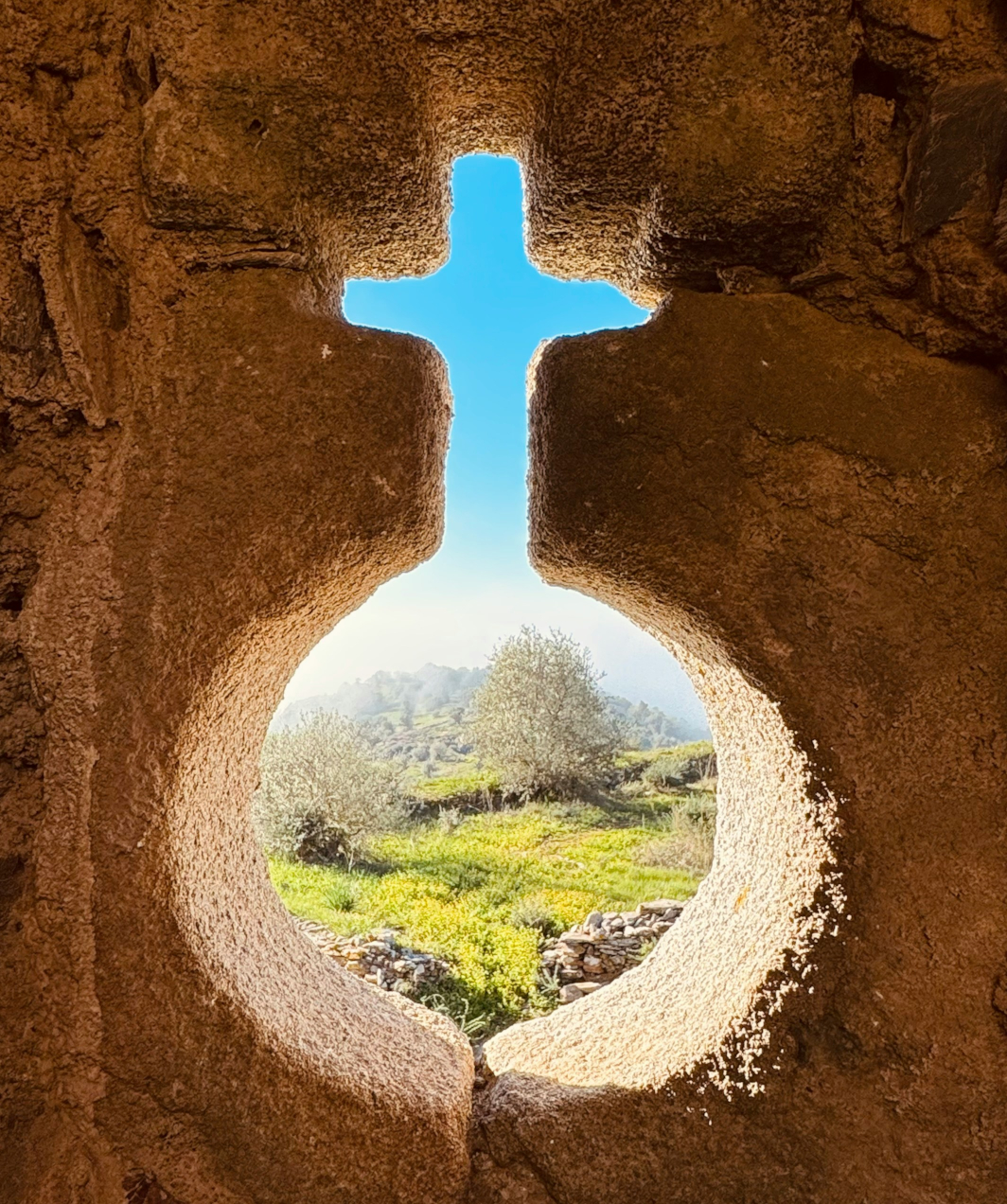
Active Learning Bible Studies
Ascension:
Jesus, Glorified
These weekly active learning studies aim for growth in leaders and learners alike. Each onscreen study has a link beneath it to a printable version, leaving these flexible for in-person groups, remote classes, or people studying solo.
New studies are being added throughout the year!

Prophetic Word
"How foolish you are, and how slow to believe all that the prophets have spoken!" ...And beginning with Moses and all the Prophets, he explained to them what was said in all the Scriptures concerning himself.
—from Luke 24
Try It!
Photo: Priscilla Du Preez on Unsplash
Luke 24:44 describes the entire Scripture at that time (the Hebrew Bible was divided into these three categories).
Take that in: the Old Testament's central message is about ______________.
The entire Bible (Old and New Testaments) centers on God saving sinners through his chosen Messiah.
God foretold our Savior in many ways: in plain words, in poetry, in visions—even depicting the One to come through events, actions, and people.
the Law of Moses
Genesis, Exodus, Leviticus, Numbers, Deuteronomy
In this group, find at least two prophecies or depictions of the coming Savior. Discuss.
the Prophets
Joshua, Judges, 1 & 2 Samuel, 1 & 2 Kings, Isaiah, Jeremiah, Ezekiel, Hosea, Joel, Amos, Obadiah, Jonah, Micah, Nahum, Habakkuk, Zephaniah, Haggai, Zechariah, Malachi
In this group, find at least two prophecies or depictions of the coming Savior. Discuss.
Notice Jesus' implication in Luke 24:45–47: Scripture tells us ____ that we spiritually need.
Suppose Christian friends (or your kids) say they don't need to study the Old Testament because we're in the New Testament era. Do you agree? How would you respond based on what Jesus said and did after his resurrection?
the Psalms
Psalms, Proverbs, Job, Song of Songs, Ruth, Lamentations, Ecclesiastes, Esther, Daniel, Ezra, Nehemiah, 1 & 2 Chronicles
In this group, find at least two prophecies or depictions of the coming Savior. Discuss.

Jesus, LORD
"Jesus came and stood among them... Thomas said to him, 'My Lord and my God!'"
—Jn 20:26–28
Try It!
Photo: James Coleman on Unsplash
After his resurrection, Jesus taught his Church that he, God's Christ, truly is God. (He'd also taught them this ________ his death: John 6:38–40, Matthew 16:13–20, John 8:58, Matthew 22:41–46, John 17:5, Mark 14:61–64.)
Why would he need to teach it again?
And the disciples learned! Notice how they quote Old Testament scripture about Jesus: OT passages which refer to him by God's personal name, the LORD (Yahweh).
It wasn't just the apostle Paul who glorified Jesus as Christ and as LORD—the same Spirit gave the same message to all.
And who sent that Spirit? Peter tells us: compare Acts 2:17,32–33 with Joel 2:27–28 ...and with Acts 15:8!
James likewise refers to the Lord Jesus Christ as God: compare James 2:1 with 2:19. So does Jude in verse 4.
Turn also to Acts 3:15: what does Peter here call Jesus? Does the text indicate if physical or spiritual life (or both) is meant?
A whole apostolic chorus praises the Son as creator: John in John 1:1–3, Paul in Colossians 1:15–17 and 1 Corinthians 8:6!
In Acts 14:15, Paul and Barnabas testify of that one creator by a name that long distinguished him from idols and myths: "living God."
What do we learn about our Lord from his name "the living God"?
And, knowing that Jesus—like the Father and the Spirit—is the one true God, the LORD... might "the living God" also refer to something else? See Revelation 1:18.
My Lord and my God!

From Scripture
(They still did not understand from Scripture that Jesus had to rise from the dead.)
—John 20:9
Try It!
Photo: Gift Habeshaw on Unsplash
Ponder that opening verse a moment: notice the emphasis on understanding from Scripture. (Yet the Son of God himself had directly told them he would rise from death: John 2:18–22, Matthew 16:21–23, John 10:17–18,
Why was grasping this truth from Scripture important?
In what ways was it useful that their understanding was based on Scripture, not on direct revelation alone? Consider the effect this had on the apostles, on believers, on unbelievers.
Find a couple of places in the Old Testament which say or show that Jesus would rise from the dead. (A good starting point is passages that the apostles used.)
After the apostles learned how Christ's resurrection was foretold in Scripture, notice what they did with this insight!
How did they use this knowledge in Acts 2:29–32?
In Acts 17:2–3? In Acts 26:6–8,22–29?
John 20:9 says Jesus "had to" rise from the dead. This same Greek verb is also used in Luke 2:49, Mark 9:11, Matthew 26:54, and Mark 13:7,10.
God chose this verb. Why must salvation happen this way? See Revelation 22:6... and (same answer, just in different words) Acts 4:28, Isaiah 60:22, Job 42:2, Ecclesiastes 3:14.
What does this truth—this "had to" of salvation, of God's plan and will—teach us about God's motivation? About his victory?
Think how you would explain these important truths to your children, your Bible study group, or an unbeliever friend. Take turns role-playing brief conversations with them.

Seeing Christ
"Were not our hearts burning within us while he... opened the Scriptures to us?"
—Luke 24:32
Try It!
Photo: Meredith Spencer on Unsplash
Certainly this is true intellectually, with the Spirit's gifts and our growth in knowledge and insight.
But it's also true in a more significant way. Hebrews 4:2 teaches that _______ is the only way the Spirit works this blessing in us. What words does Psalm 25:14 use to describe this same profound truth?
Recall: Scripture's central message is God restoring a right ___________ between himself and people (Genesis 17:7, Exodus 20:12, Psalm 103:2–4, Isaiah 25:6–8, Isaiah 53:5, Hosea 2:16–20, Matthew 1:20–23, John 14:3, 2 Timothy 1:9–10, 1 Peter 1:10–13).
2 Corinthians 3:14–16 says that to correctly understand Scripture, we must see _________ in it. Who helps us do this? Verse 18 answers: ______ himself.
Seeing God's Christ in Scripture is key to understanding the "mystery hidden... but now revealed" (Ro 16:25–27). Revealed through/by _________ (v 26)?
The Bible reveals a marvelous truth: God himself helps us understand his word.
Compare "opened the Scriptures" with what happened earlier that day. What word does verse 27 use to describe Jesus opening the Scriptures?
Go back through the verses in this short study. How many of them discuss both our need to understand God's word and God's promise to help us?
What can you do to help your family grow in seeing Christ in your study of the word?

His Kingdom
"He appeared to them over a period of forty days and spoke about the kingdom of God."
—Acts 1:3b
Try It!
Photo: Pao Dayag on Unsplash
Consider the disciples' ignorant question in Acts 1:6. They were still laboring under the wrong idea, still focused on outward Israel. Jesus had been correcting this: his kingdom isn't earthly, but ________ (Luke 17:20–21, John 18:36, Matthew 4:17, Matthew 25:31–34, Mark 9:47, Luke 13:28, John 3:3–8).
Nicodemus did as we all should when we don't understand: he turned to God for the answer.
And Jesus answered as the prophets had long said: being born of the Spirit is simply _______ in God, in the salvation ___ provides. In Matthew 18, Jesus says the same thing in different words: entering God's kingdom requires what?
Jesus famously also taught this truth in a parable. What's the connection between faith in God and humility?
So, before his ascension, Jesus again reminded his disciples of the heavenly nature of his kingdom, as he had back at the temple. Does something Jesus said in Mark 13:32 match what he again says in Acts 1:7?
Did the disciples take his teaching to heart?
See 1 Thessalonians 5:1–5...
What was the apostles' focal point in Acts 3:21ff: the earthly or the spiritual?
The parable in Mark 4:26–29 teaches us something important about God's kingdom. Explain the main point of the parable: how is God's kingdom like a field of growing grain? (Isaiah 55:10–11 helps us figure out the answer.)
Tip for rightly understanding parables: focus on the main point. Don't artificially force a meaning onto each element of the story. Jesus himself says this parable describes one main thing: _____________ (v 26).
Now think about this parable of the growing seed (which describes how and why God's kingdom grows) in relation to the heavenly nature of that kingdom.
Read God's word of assurance about his vineyard (his kingdom, his people) in Isaiah 27:3. What does this promise of his free you from? And free you to do?

Try It!
Ascension
Photo: Szabo Viktor on Unsplash
Christ's triumphant ascension to the right hand of the Father is often considered a relatively minor church festival. But Scripture teaches the importance of this great event...
Trouble and death face us all. It is good to listen, comfort, and support each other. But why do we so often hesitate to also fix each other's gaze on the joy set before us?
Choose one Bible verse about the glory that awaits God's children. Practice using it to encourage yourself, family, or a friend.
Hebrews 12:2 reminds us that Christ was looking ahead, with death a mere step on the road to "the joy set before him." (Notice the depth of the original Greek word for "scorning" the shame of the cross!)
Jesus' struggle in Gethsemane shows that he knew how terrible would be the punishment he took for the world's sin. But his focus was on ___________.
Read Luke 9:51.
Jesus himself, perfect in faith, repeatedly teaches us to look ahead to the fulfillment of God's plan. Delightfully, he uses the pun "exalted" (literally "lifted up") to do so: with Nicodemus, with those who would kill him, with the crowds.
Read John 12:23–33. In verse 23, what time had come? Verse 28 repeats aloud the goal: what is it?
In fact, Hebrews 5:5–10 discusses Jesus' temptation and death in terms of "the _____ of becoming __________" (v 5)!
This foreshortening of faith—looking head-on at God's plan and joyfully striding toward his purpose—is evident throughout Scripture.
We children of God aim to share his attitude. What is earthly suffering, what is physical death, but a step toward __________?
When my heart was grieved and my spirit embittered,
I was senseless and ignorant; I was a brute beast before you.
Yet I am always with you; you hold me by my right hand.
You guide me with your counsel, and afterward you will take me into glory.
—Psalm 73:21–24

The Gospel Message
"Jesus... told them, 'This is what is written: The Messiah will suffer and rise from the dead on the third day, and repentance for the forgiveness of sins will be preached in his name to all nations...'" —from Luke 24
Try It!
Photo: Rodolfo Barretto on Unsplash
"The Messiah..."
Recall that "Messiah" means "anointed one." According to Psalm 2, how many Messiahs? And anointed to do what?
Bonus: find another Old Testament passage that says what the Messiah was anointed to do.
"...will suffer..."
Read Zechariah 12:10. Suffer how? (Notice also that the suffering one is described both as _____ and _____! Does this phrasing remind you of an ancient prophecy of who the Savior would be?)
Bonus: find an Old Testament passage that explains why the Messiah would suffer.
"...and rise from the dead on the third day..."
Jesus, way back in his ______ year of ministry (John 2:18–22), had said he'd rise to life on his third day in the grave. It's possible Hosea 6:2 obliquely foretells this: for through faith, we were raised to spiritual ______ with Christ (Is 53:10, Hb 2:4, Ro 6:5, Col 3:1, 1Pe 1:3). Without his resurrection, we would still be dead in sin!
"...and rise from the dead on the third day..."
Genesis 22 foretells Jesus' third-day resurrection in a remarkable way. Recall whom Isaac here typologically represents: _______. (God even set this prophecy in the area where his One and Only Son would be an offering for the world's sin!) The resurrection appears in 22:5—how can you tell the father knew his son would return alive? The timing is in verse 4; see also Hebrews 11:19!
"...repentance for the forgiveness of sins..."
Isaiah 55:7 wonderfully encapsulates the Bible; identify the truths it teaches. Consider memorizing this verse! Why remember it when we or others are struggling? Why remember it when we or others are strong?
BONUS: Many liturgies and hymns include Old Testament verses about forgiveness: share a favorite!
"...will be preached in his name..."
How did the patriarchs witness to the people around them? Find a specific example in Genesis. How did the OT nation Israel, living under the Mt. Sinai contract? Find a specific example. How do you?
BONUS: "His name..." What does God say about the popular idea of a generic divinity? He answers in Isaiah 42:8, in Acts 4:8–20...
"...to all nations..."
God's promise has ever and always been for all who come to him in faith. God promised Isaac, "...Through your offspring all nations on earth will be blessed...." And that offspring? "...He will not falter or be discouraged till he establishes justice on earth. In his teaching the islands will put their hope."

Try It!
Pentecost
Photo: Szabo Viktor on Unsplash
"The promise is for you and your children and for all who are far off—for all whom the Lord our God will call."
—Acts 2:39
PRINTABLE ASCENSION